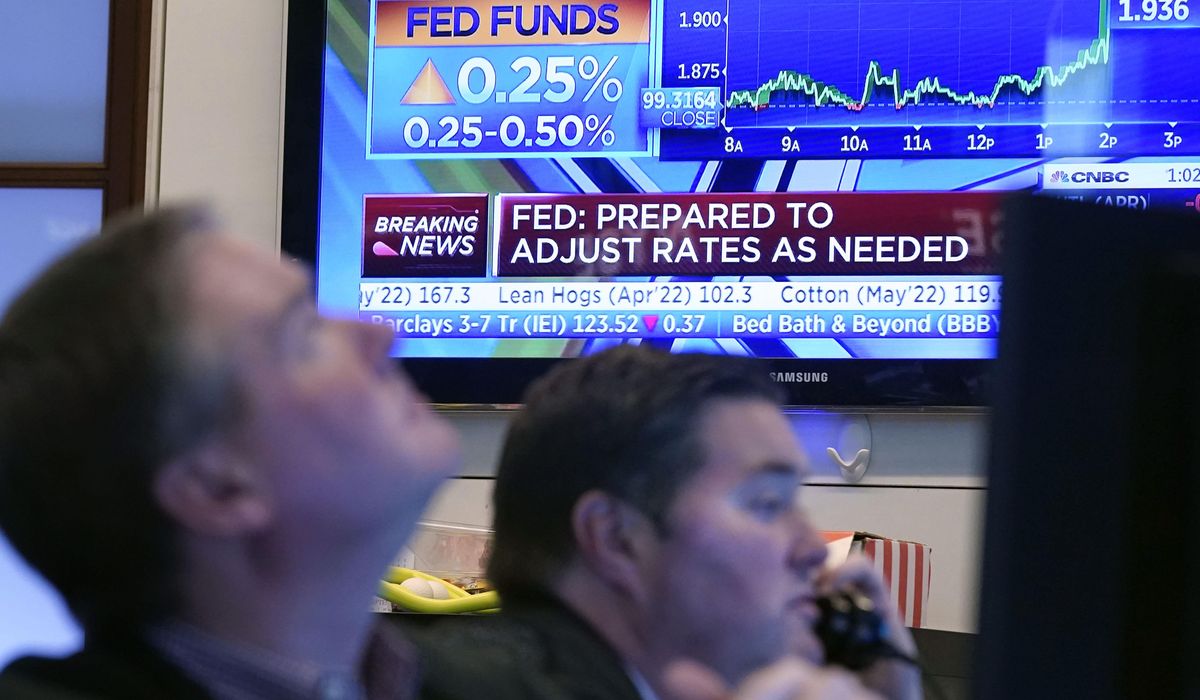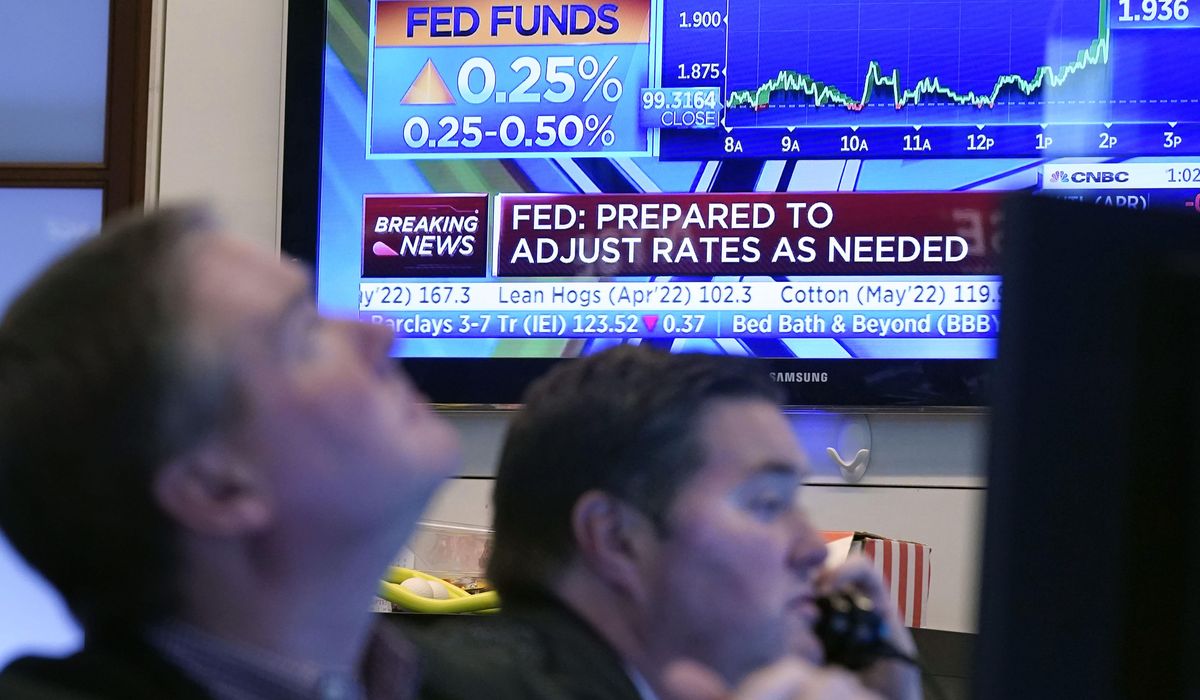
President Biden’s proposal to raise taxes across the board could hasten the onset of an economic recession, economists say.
The analysts say Mr. Biden’s push to raise corporate, income and other taxes by more than $2.5 trillion would kill thousands of jobs and curtail private-sector investment.
Those effects, coupled with the Federal Reserve’s aggressive interest rate hikes, would send the economy careening into a quicker and deeper recession than most experts say is on the horizon.
“This would be like lighting a match to a forest fire,” said Steve Moore, a onetime economic adviser to President Trump. “If we were to raise taxes right now, that would have an extremely negative effect on the economy.”
Most economists say that with the nation facing a supply chain crisis and inflation climbing to 8.5% — with few signs it will slow anytime soon — Mr. Biden’s tax hikes would only exacerbate the situation for individuals and companies.
Proposed tax increases on individuals would prevent wealthy Americans from investing directly or spending enough to get the economy moving out of a recession.
“It’s been observed that should higher taxes fall on higher-income earners, investment capital will decline,” said Carl Schramm, an economics professor at Syracuse University. “This is exactly what no one would want going into a recession.”
Private-sector investment likely will plummet if Mr. Biden succeeds in raising the corporate tax rate from 21% to 28%. It would prevent manufacturers from producing more goods and services, especially those that are already in short supply.
The effect, in turn, would do little to counter inflation, which many economists say has been driven by Congress pouring too much money into the economy via coronavirus stimulus payments and a genuine lack of goods and services because of the supply chain crisis.
“If you tax businesses more, you’re going to get less output and that’s going to make inflation worse, not better,” Mr. Moore said. “If you keep letting inflation linger, it becomes like a cancer cell in the body. It grows and gets bigger, and the more it lingers, the harder it is to take out.”
The impact would not be any better for individuals. Mr. Biden’s corporate tax hike is estimated to kill more than 138,000 jobs over the next decade alone, according to the nonpartisan Tax Foundation.
Fewer jobs means less money going into the economy through consumer spending on goods and services. Economists say the latter would decrease anyway because Mr. Biden’s income tax hikes would eat away at the amount of money that upper-income individuals have to spend.
Mr. Biden’s proposed tax increases are raising concern as economists and financial institutions sound the alarm about a looming recession. Many say the Federal Reserve System’s efforts to lower inflation by raising interest rates will likely push the economy into a tailspin.
Bank of America warned its clients last week that the economy, wracked by supply chain issues and an overly generous COVID-19 relief package, appears primed to shrink as interest rates jump.
Michael Hartnett, Bank of America’s chief investment strategist, predicted a “recession shock” by the end of next year or soon thereafter.
Economists say those initial estimates are based only on the Federal Reserve’s signal that more aggressive interest rates hikes are coming. They note that few financial institutions have weighed the impact that Mr. Biden’s tax hikes, if implemented, could play.
“These calls are all based on inflation rates and interest rates. They do not appear to take into account the impact of high taxes,” Mr. Schramm said. “If President Biden were to succeed in getting tax increases … it will push us towards recession much faster.”
The warnings do not bode well for Mr. Biden and other Democrats, who retain narrow control of Congress. Democrats were already expected to lose seats because the incumbent president’s party historically has done poorly in the first midterm elections.
Still, Mr. Biden has defended his push to raise taxes. He says corporations and the wealthy need to pay “their fair share.”
“The Trump tax cuts added $2 trillion in deficit spending and largely helped the rich and the largest corporations,” Mr. Biden has said. “My budget raises the corporate tax rate to 28%, far lower than the rate it was between World War II and 2017 when it was lowered.”
At the moment, Mr. Biden’s tax hikes face long odds of becoming law.
Given universal Republican opposition to raising taxes, the only hope for the proposal making it through the evenly split Senate is via a party-line process known as budget reconciliation. The process allows some spending and tax measures to pass by a simple majority of 51 votes rather than the more customary 60 votes needed to avert a filibuster.
Democratic unity is not assured, however. Sen. Kyrsten Sinema, Arizona Democrat, has expressed opposition in the past to raising corporate and income taxes.
Although most political insiders expect the opposition to hold, Republicans say that even the threat of raising taxes could damage the economy during this tenuous time.
“We ought to be driving more investment in the U.S.,” said Rep. Kevin Brady of Texas, the top Republican on the House Ways and Means Committee. “New innovation is what the administration [should be] championing, but they are still stuck … talking about a trillion and a half dollars of tax hikes on job creators at the worst possible time. [Businesses] pay attention to this.”








-Reviewer-Photo-SOURCE-Ryan-Waniata.jpg?w=330&resize=330,220&ssl=1)